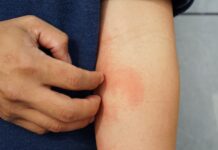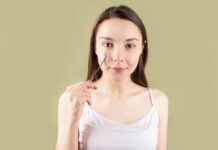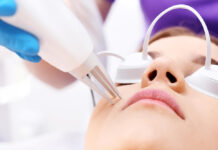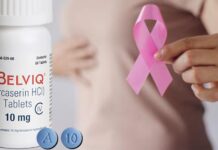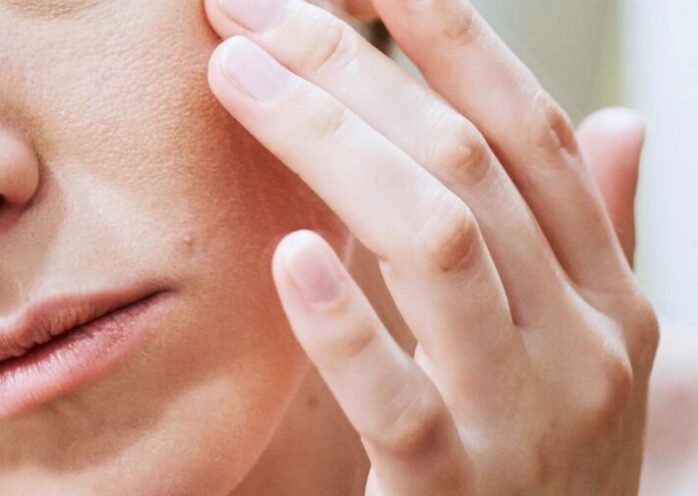
The skin, you may be surprised to know, is the largest organ we have in (or on) our bodies. It’s the first line of defence for the body against harmful bacteria, viruses, chemicals and weather conditions, our skin is amazing at taking the hit for much of what life has to throw at us. Couple that with hormonal changes at certain stages of our development, the skin can often use a helping hand during tough spells of acne, eczema or any other skin conditions or imperfections. To make matters more complicated, our skin isn’t all created equally, with each person having different levels of natural oils and sensitivity to the elements or chemicals, as well as our skin behaving differently depending on location. It’s therefore an important process to understand the needs of your specific skin, which foods are aggravators for flare-ups, and which products your skin agrees with.
This article is written in collaboration with Pharmica and it explores preventative methods and direct treatment options in combating acne and eczema, to reduce the chances of long term damage.
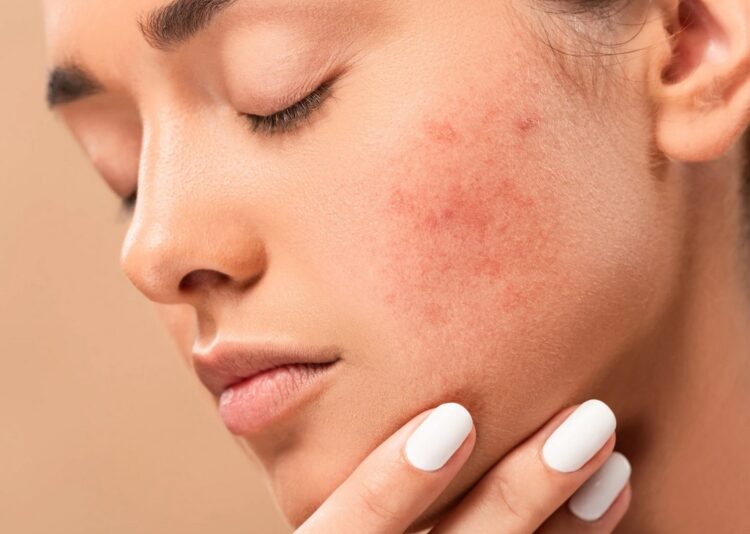
What’s Acne?
Acne is in fact the most common skin condition in the UK, with 4 out of 5 teenagers and young adults experiencing it to some degree. Acne is a skin condition often characterised by multiple red spots, whiteheads, blackheads or cysts on the face (often on the cheeks or the forehead) and sometimes on the back or chest. Not all acne is as severe as clear visible blotches or large patches of spots, it often occurs in moderation or comes and goes in waves depending on hormone balance. Acne occurs when dirt, dead skin or oil gets in the hair follicle and blocks the pore. It’s most common during puberty and in the late teens and early adulthood as this is when the body goes through its most significant hormonal shift, but it is possible and quite common for adults to suffer from acne too.
How To Treat Acne
Often acne calms down once the teenager reaches adulthood, sometimes subsiding on its own, but this is not a reason to neglect your skin health. Acne is often an unpleasant condition that leads to a lot of issues surrounding self-confidence, and can sometimes result in permanent scarring, so it’s key to treat acne with the appropriate medication as soon as it’s observed.
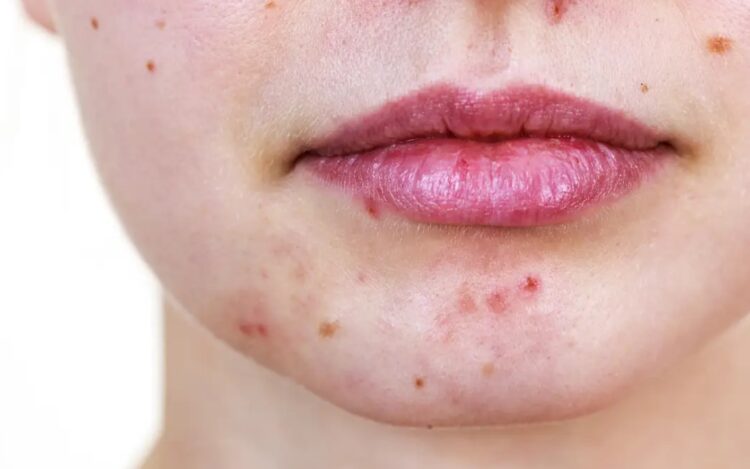
Medication
- OTC medication – Topical treatment is a common and popular method of easily soothing acne symptoms. They come in many forms, such as gels, creams, ointments and oils. Popular brands are clinically-proven to stop mild to moderate acne from continuing, and can even clear acne completely. Because many of these medications are anti-inflammatory, they’re soothing and pain-relieving when applied, and are often suitable for daily use without negative consequence.
- Prescription medication – Prescription meds such as Epiduo Gel contain adapalene and benzoyl peroxide, to reduce bacteria on the skin with their antiseptic properties, and are highly effective at clearing acne, especially for those suffering more severely. Very quick acting, cleared skin can be observed from as little as 1 week after first use.
Other considerations
- Don’t wash the acne-affected patches of skin more than twice per day, since washing frequently can cause irritation to the skin. You should use mild soap such as goat milk soap with lukewarm water, being gentle on the skin; you shouldn’t exfoliate too hard since this can worsen the symptoms and slow recovery.
- Get a good night’s sleep – this can reduce your stress levels, known to aggravate acne symptoms.
- Eat slow-burn carbohydrates – this will prevent your insulin levels from suddenly spiking, leading to increased acne.
- Drink plenty of water – this will help to get rid of any internal toxins from the body, whilst also resetting your metabolism.
- Some alternative treatments include the use of borage, lavender and tea tree, although the efficacy of these natural methods is predominantly anecdotal.
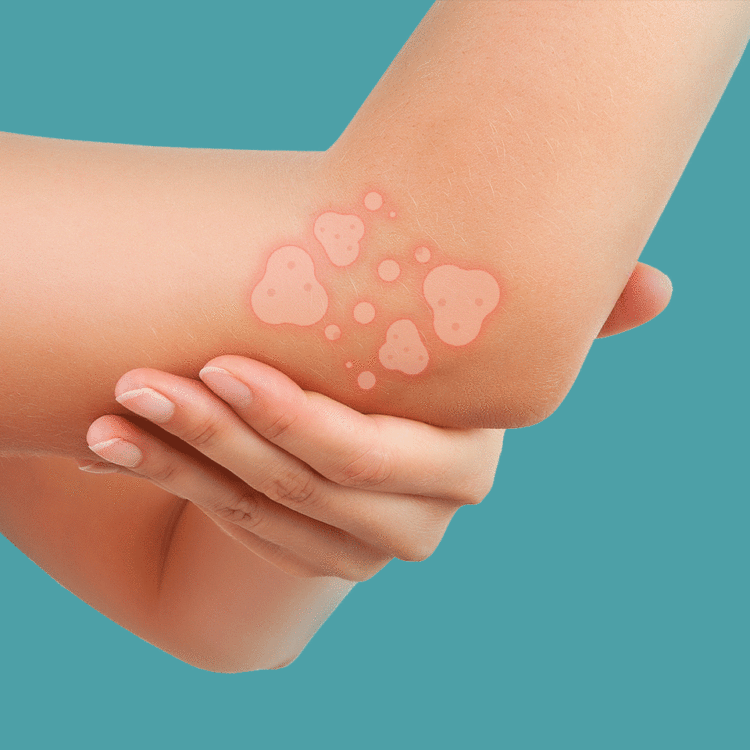
What’s Eczema?
Eczema is not as common a condition as acne, although it still affects 20% of children. Causing itchy skin and irritation, the skin will often appear dry or cracked, and can affect small areas of skin all the way to larger areas. The main culprit here is dryness of the skin, and can be caused by external factors such as the environment or genetics. Other triggers might include harsh soaps or fragrances, made-made fibres in clothing, and hormone shifts. It can develop in adulthood, although the first outbreak usually occurs when we’re still babies, around the 1 year old mark. Thankfully eczema is not infectious, so you can’t ‘catch’ it from someone with eczema.
How To Treat Eczema?
Whilst there’s no proven ‘cure’ for eczema, you can manage and treat the uncomfortable symptoms with relative ease.
Medication
- Topical corticosteroids – anti-inflammatory medication such as this help to reduce redness, dryness, itchiness and swelling. Again, you can get these as creams, gels or ointments. The ointment is oil-based, so will take longer to be absorbed into the skin completely, meaning it’s perfect for eczema relief over long periods. Some creams alsop helps in treating dermatitis. These shouldn’t be used on the face, however, since they wokr by reducing the immune system response to the area where applied, sometimes actually causing acne as a consequence.
- Emollients – another name for moisturisers, these topical creams, lotions, ointments and sprays hydrate and soothe the skin. Dermol 500 contains antimicrobial properties that provide quick relief from itchiness, and is a soap and also a moisturiser replacement. E45 have a substantial line of topical emollients that are easy on the skin and formulated for daily use.
- Antihistamines – For really bad itching, antihistamines can be used as an effective solution.
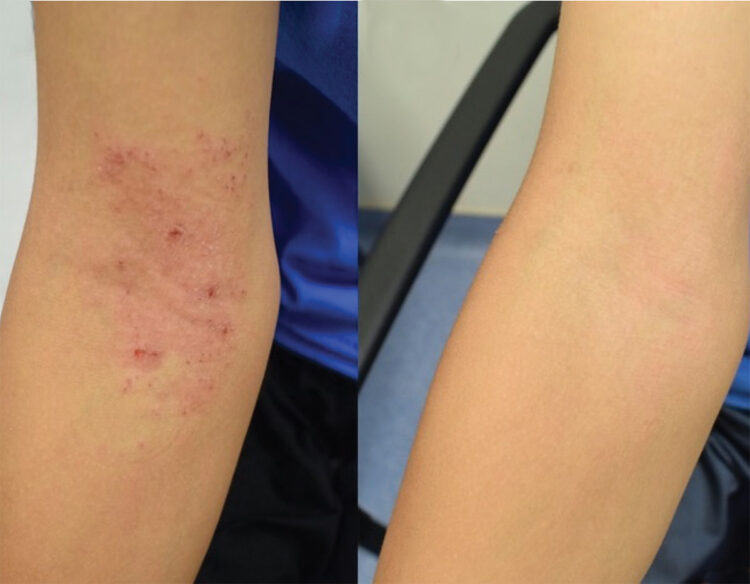
Other considerations
- You must not scratch your skin hard, however tempting it is to relieve the itchiness, as damage can be done to the skin that can lead to more eczema. Cover your skin with thin clothing and cut your nails short so habitual scratching doesn’t damage the skin too much. For tricky areas, you could use a bandage to give your affected area some protected space.
- Avoid common triggers of eczema, like man-made fibres and allergens.
- Use special bathing products like the Aveeno Dermexa, as these are designed to be kind to damage and tender skin.
- Certain foods, such as animal dairy products, act as triggers of eczema symptoms. Experiment with removing these from your diet and you may well see an improvement in your skin health.

